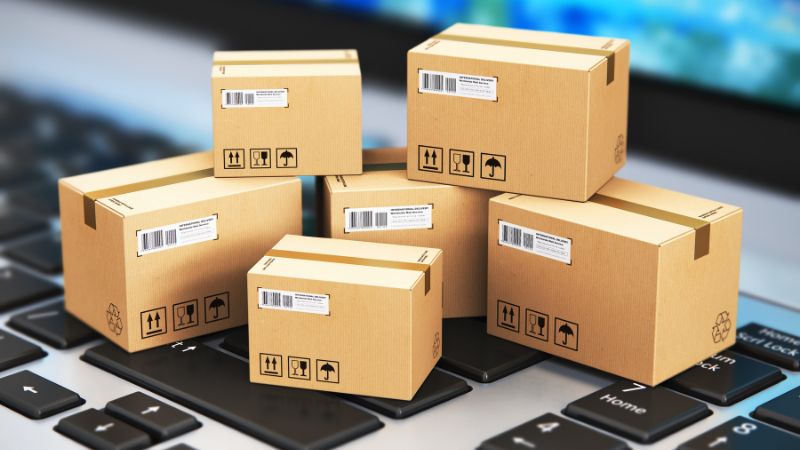In today’s globalized world, shipping products across borders has become a standard practice for both businesses and individual consumers. One sector witnessing a significant surge in demand is electronics. As technological advancements propel the world forward, regions like Pakistan are emerging as key markets for these products. Shipping electronics to Pakistan, however, is not a straightforward task. The country has its unique set of customs regulations, duties, and requirements that shippers must navigate to ensure their goods reach their destination without any hitches.
For those unfamiliar with the intricacies of international trade, sending tech products to South Asian nations can seem daunting. Pakistan, with its growing middle-class population, presents a ripe opportunity for electronic brands and sellers. But to tap into this potential, understanding the nuances of shipping electronics to Pakistan is paramount. From regulatory approvals to customs duties, a slew of factors come into play, demanding meticulous attention to detail from those looking to penetrate the Pakistani electronics market.
Before you begin the process of shipping electronics to Pakistan, it’s crucial to be aware of the import regulations and restrictions that apply to such items. Understanding these rules will help you navigate the process more smoothly and avoid potential legal complications.
Custom duties and taxes are a significant consideration when importing electronics into Pakistan. These fees are calculated based on the type and value of the electronic item being shipped. Importers are responsible for paying these charges, which are typically assessed using the Customs Tariff.
It’s essential to research the specific duties and taxes that apply to your electronics. These rates can change, so it’s advisable to check with Pakistan Customs or a customs broker for the most up-to-date information.
Pakistan has a list of restricted and prohibited items that you should be aware of when shipping electronics. While most electronics are not prohibited, some items may be subject to restrictions or require special permits. For instance, the import of used electronics may be restricted, and certain military-grade equipment may require special authorization.
To avoid complications, it’s advisable to check the current list of restricted and prohibited items with Pakistan Customs and seek guidance if you are uncertain about the status of your electronic products.
Certain electronics, particularly those with wireless or telecommunications capabilities, may require regulatory approvals from the Pakistan Telecommunication Authority (PTA) before they can be imported and sold in the country. It’s essential to obtain the necessary certifications and approvals to ensure compliance with local regulations.

To facilitate the customs clearance process and ensure your electronic shipment reaches its destination without delays, you’ll need to provide specific documentation. Here are the essential documents you may need:
The commercial invoice is a key document for customs clearance in Pakistan. It should be detailed and accurate, providing information such as the sender’s and recipient’s details, a comprehensive description of the electronics being shipped, their total value, and the terms of sale (e.g., CIF – Cost, Insurance, Freight).
Especially crucial for bulk shipments, the packing list provides a comprehensive breakdown of the contents of your shipment. It includes information about the weight and dimensions of each package, which aids customs officials in assessing the shipment’s compliance with the declared value and contents.
Certain electronic items may require an import license in Pakistan. To determine whether your shipment falls under this category, check with the relevant authorities. Obtaining the necessary licenses before shipping is crucial to prevent delays and potential legal issues.
If your electronics have telecommunication capabilities, they may require prior approval from the Pakistan Telecommunication Authority (PTA). The PTA ensures that these devices comply with local regulations and standards. Ensure you obtain the necessary PTA certification to avoid complications during customs clearance.
When shipping electronics to Pakistan, you have several transportation options to consider. Each method has its advantages and disadvantages, and your choice may depend on factors like the value, size, and urgency of your shipment:
Air freight is the quickest method for shipping electronics to Pakistan. It’s ideal for high-value, time-sensitive items, such as the latest smartphones or fragile electronic components. However, it can be more expensive than sea freight due to the speed and convenience it offers.
Sea freight is a cost-effective option for shipping large quantities of electronics or bulky items. While it may take longer than air freight, it can be significantly more economical. Sea freight is often chosen for shipping items like gaming consoles or large appliances.

To ensure a smooth and successful shipping process when sending electronics to Pakistan, consider the following tips:
In conclusion, shipping electronics to Pakistan involves navigating various rules and regulations. By thoroughly understanding and complying with these requirements, selecting a reliable shipping service, ensuring proper documentation and packaging, and following these tips, you can successfully ship electronics to Pakistan and contribute to meeting the growing demand for technology in the country. Remember that staying informed and prepared is key to a smooth shipping experience.
